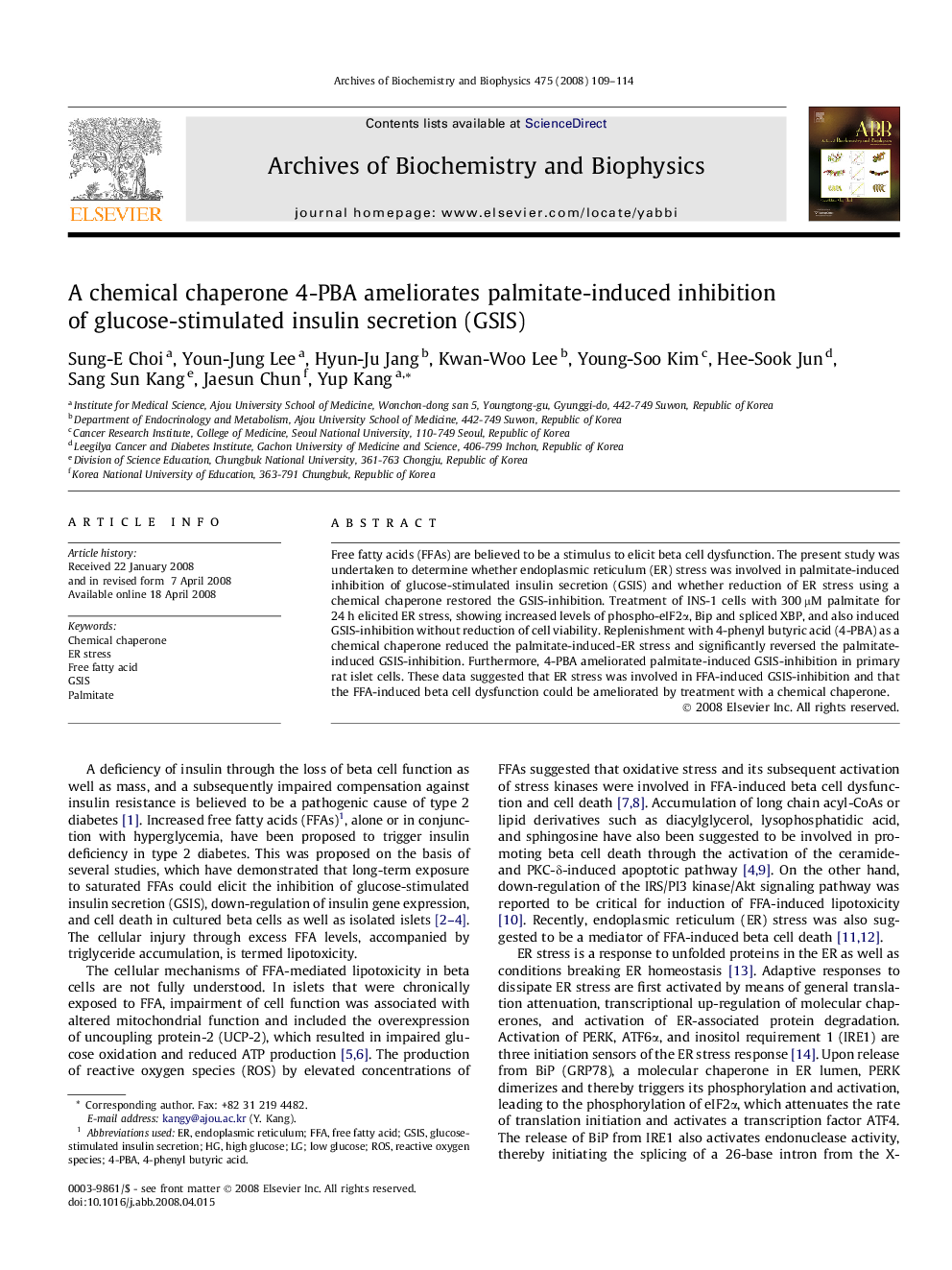| Article ID | Journal | Published Year | Pages | File Type |
|---|---|---|---|---|
| 1926716 | Archives of Biochemistry and Biophysics | 2008 | 6 Pages |
Free fatty acids (FFAs) are believed to be a stimulus to elicit beta cell dysfunction. The present study was undertaken to determine whether endoplasmic reticulum (ER) stress was involved in palmitate-induced inhibition of glucose-stimulated insulin secretion (GSIS) and whether reduction of ER stress using a chemical chaperone restored the GSIS-inhibition. Treatment of INS-1 cells with 300 μM palmitate for 24 h elicited ER stress, showing increased levels of phospho-eIF2α, Bip and spliced XBP, and also induced GSIS-inhibition without reduction of cell viability. Replenishment with 4-phenyl butyric acid (4-PBA) as a chemical chaperone reduced the palmitate-induced-ER stress and significantly reversed the palmitate-induced GSIS-inhibition. Furthermore, 4-PBA ameliorated palmitate-induced GSIS-inhibition in primary rat islet cells. These data suggested that ER stress was involved in FFA-induced GSIS-inhibition and that the FFA-induced beta cell dysfunction could be ameliorated by treatment with a chemical chaperone.
